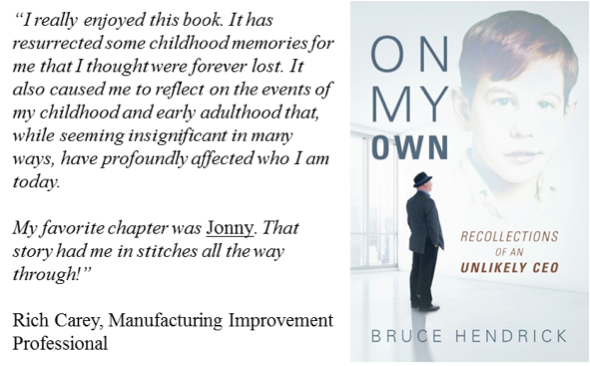Personal Trust Factors
Building Trust, LLC usually concentrates on what we can do to earn the trust of other folks. Today we explore the other side of that coin.
Do you ever wonder why trust seems to come more naturally to certain people? You notice that others’ willingness to extend trust differs widely from your own. Sometimes you wish you could just relax, open up and build that relationship. Other times you think that people are foolish for doing so; they are risking too much.
Let’s acknowledge that there is a broad spectrum among us as to how much trust we inherently offer to others. We want to be mindful of where we fall on this continuum. By knowing our own inclinations, we can be more self-aware and therefore apt to choose a wise approach.
[Standard caveat: I remind readers that just because we are devoted to building trust does not guarantee that the other individual is trust worthy . We must always keep our eyes open.]
Key Events
Key events in our formative years, and also at pivotal professional moments, often shape our reactions for years to come. These and other environmental factors offer a powerful glimpse into the influences that contribute to extending trust. And this is an ongoing process.
A few years ago I made a huge gamble. A large customer at a company I was running had begun to blame us for a slew of quality problems. Their own quality program had glitches but it was our reputation that was taking a beating within their management team. While “the customer is always right,” I knew that we bent over backwards to supply them. So I took a very risky and unpopular stand: I refused to ship more product until and unless we wrestled down the root cause issues in a joint session. Sparing the details, it went well. Mutual trust was restored and shipments resumed soon thereafter. Today that relationship is still in great shape.
What lessons did I learn from this? I’m sure you can fill in the blanks. But here’s the important question: if things had gone south and we had lost that big customer, do you think I would have learned the same lessons? Not so much. And in this way, the outcomes from the risks we take subtly accumulate over a lifetime. They determine how much, how often, and with whom we are willing to take risk.
People for whom extending trust comes more “naturally”, then, have learned through experience that it is safe to do so! Those who don’t give their trust as easily have plenty of personal evidence to the contrary. Now let’s pry this open a bit.
Our Own Journeys
A gutsy look at our own journeys might be worthwhile. We know that the events in our lives are important. Perhaps even more significant is (or was) our reaction to them. If we tried to put these trust reactions on a scale, it might look like this:

Think about the factors below that impact you as you extend trust to others. Using the scale, ask yourself where your accumulated life experience might cause you to react to unknown people, challenges or opportunities.
Personal Trust Factor
- The amount and level of risk I’m willing to live with.
- The dependability of my family members as a child.
- The stability of my environment, past and present.
- My level of “tribal” thinking (e.g. “never trust those people” ).
- My physical, mental, and emotional health.
- My level of financial independence.
- My age and stage of life.
- My faith and spiritual confidence.
- Traumatic events (natural or man-made) I have experienced.
- My social sensitivity and acumen.
- Neglect or abuse I may have endured growing up.
- The rigidity of my thinking (black & white vs. shades of grey).
- My sense of self and self-determination.
- My work history (co-workers, bosses, organizations).
- Whether I can and do express my thoughts openly and clearly.
By being mindful of our own tendencies in this regard, we can choose the wisest path for ourselves, on both counts.
Click here to reserve your seat at the next public session of the Building Trust Experience on July 8-9, 2015.




